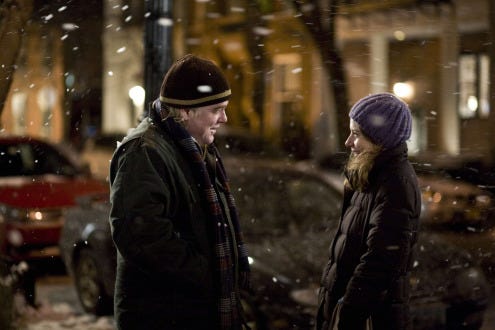Jack Goes Boating

Every life, whether carried out in a small town or a bustling metropolis, is at its core tiny. While there may be day-to-day interactions with a cast of thousands, it's often a few relationships that define an individual's existence. Such relationships can be rewarding, soul-sucking, and everything in between.
Within its four main players, "Jack Goes Boating" contains several complex dynamics, among them friendship, coworker, romantic interest, and long-term commitment. At the film's heart is Jack (Philip Seymour Hoffman), a dreadlocked limo driver whose desires are achingly simple: learn to swim, cook a meal, score a job with the Manhattan Transit Authority, and connect with introspective Connie (Amy Ryan). As Jack and Connie slowly grow closer, the marriage of their friends Clyde (John Ortiz) and Lucy (Daphne Rubin-Vega) quickly cracks wide open.
Hoffman directs this adaptation of Robert Glaudini's stage play, in which Hoffman, Ortiz and Rubin-Vega starred off-Broadway. Only Ryan is new to the original cast, and it shows - yes, Connie is new to the group and painfully shy, but at times it seems as if Ryan is starring in her own play. She doesn't seem like a diva, just disconnected from the others.
However, there's a lot to like about "Jack Goes Boating." The scenes where Clyde patiently coaches Jack at the public pool speak volumes about the history and trust between the two men, and both actors practically pop off the screen. Though Lucy's actions are often reprehensible, Rubin-Vega brings empathy to a woman who acts out because she feels trapped. And as would-be lovers stumbling and stuttering toward something real, Hoffman and Ryan are pitch-perfect.
Sure, "Jack Goes Boating" veers into Indie 101 territory, with random "quirky" monologues and a score that's almost too mellow. But its pared-down glimpse into a base human need - to be understood - brought to light by four incredibly strong actors, makes it worth the slightly tedious ride.



